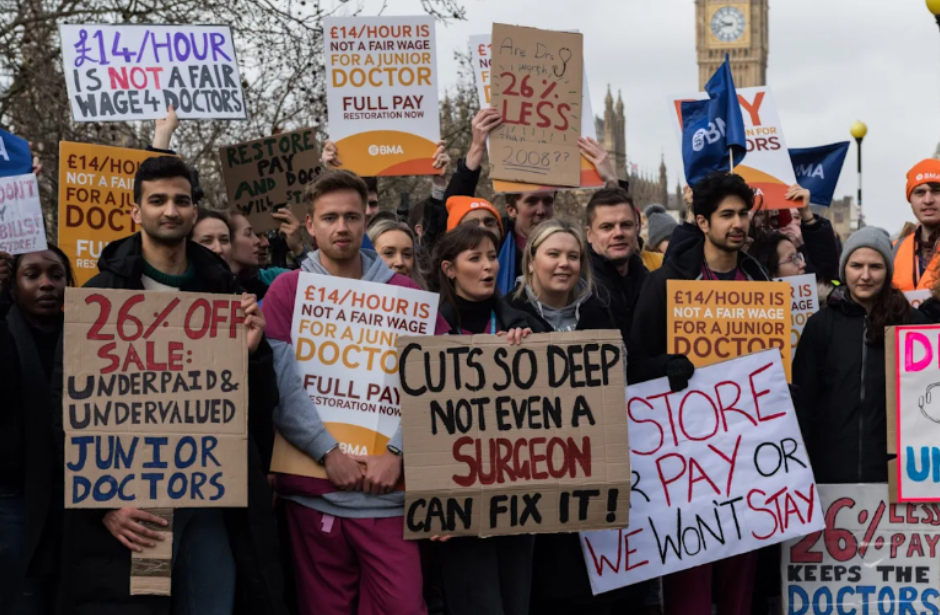NHS patients up and down the country have faced mass cancellations as recent strike action by clinical staff strengthens. The disruption has placed unimaginable pressure on services and raised concerns about the long-term impact on patient care and recovery efforts.
The Scale of the Disruption

• Over 91,000 appointments and procedures were rearranged in one week alone during a recent five-day resident doctor strike.
• Previously, the record NHS strike resulted in 113,779 inpatient and outpatient sessions being cancelled.
• Since the commencement of industrial action in late 2022, NHS England has formally put the number of cancelled appointments and operations in England at 1 million, although these are likely to be below the actual numbers.
These statistics are referred to as the “tip of the iceberg” because hospitals are more and more inclined not to book elective appointments on strike days to avoid last-minute cancellations.
What It Means for Patients

The human cost transcends statistics:
• Missing follow-up appointments and diagnostic tests have made many patients fear for their safety, and they are in pain.
• Cancellation of essential cancer appointments and operations has created undue worry, particularly with 36,000 cancer procedures being cancelled in one phase of industrial action.
• Appointments for some patients have been repeatedly cancelled, eroding trust in the system and slowing down vital care.
Operational Strain on the NHS

The effect is not just on patient waiting lists:
• Operations managers have been said to spend as much as one-third of their time organising strike arrangements, rescheduling, and dealing with cover plans.
• Strike costs have already totalled hundreds of millions—including paying premium rates for emergency staff cover—and NHS England puts strike-related costs at up to £360 million.
• Parts of the NHS have experienced losses in appointments of up to two million operations or sessions when including hidden figures.
Why It Matters Now

With continuing industrial action—including the current doctors’ strikes over better pay and conditions—NHS leaders threaten escalating deferrals and increased pressure on services. Waiting lists continue to increase, elective treatment targets are under threat, and the public is at its limit.
Health Secretary Wes Streeting emphasised the necessity of fresh talks, calling on unions to act together rather than extend the crisis. He points out that doctors have already experienced a 28.9% pay rise since 2022 and insists that more pay rises are not an option at present.
Final Thoughts
When hundreds of thousands of NHS appointments are cancelled during strikes, the impact reverberates far beyond those calendars. Patients experience delays in life-saving care, NHS staff enter crisis management mode, and UK healthcare is stretched to its limits.
Sorting out these disagreements early, not late, isn’t just a matter of respecting the contributions of frontline workers—it’s about maintaining timely, reliable care for the millions who depend on the NHS every day.
